The February birthstone is amethyst. A form of non-fluorescing hard stone quartz whose typically purple shading comes from irradiation of iron or transition element impurities, amethyst was once considered one of the cardinal, or most valuable, gemstones. Occasionally exhibiting secondary shades of blue or red, the beautiful stone is highly popular among mineral collectors, crystal healers, art lovers, lapidaries. While not considered as valuable as it once was due to recent discoveries of large deposits of the mineral, amethyst often produces stunning jewelry.
Traditionally most carved gemstones in the west are a form of quartz, the carving techniques adopted for quartz also apply to amethyst. Amethyst deposits have been found on almost every continent and it’s availability was a key factor in it’s popularity as a carving medium of artisans in antiquity. Deposits have been found in Brazil, Uruguay, Austria, Russia, Zambia, and Korea, as well the eastern and southern areas of the United States, including Texas, North Carolina, and the Lake Superior Region.
Amethysts was carved and treasured by cultures such as those of Japan, Iran, Greece, Rome, Egypt, the Anglo-Saxons and others. Different cultures each put their own spin on the importance, meaning and value of the stone. It was highly treasured by Russian Empress Catherine who sent thousands of miners into the Ural mountains seeking the gemstone. In ancient Rome, the purple color of the gem was associated with the purple color reserved for the elite and the emperor. The medieval Catholic church’s bishops prized amethyst’s color. The ancient Egyptians worked the material into amulets for protection against harm. Moses the prophet is said to have described amethyst as representing the spirit of god. The ancient Greeks believed the stone offered protection from drunkenness. The Tibetans created rosaries from the stone and considered it sacred to Buddha. Leonardo Da Vinci wrote that amethyst quickened intelligence and dissipated evil thoughts. The Anglo-Saxons fashioned beads, while was used for intaglio.
In this article we present a visual tour of the different ways amethyst has been used in art, both ancient, antique, and modern.

Amethyst intaglio portrait of Julius Caesar, Roman, 50-40 B.C.E.
Byzantine Jeweled Bracelet of gold, silver, pearls, amethyst, sapphire, glass, quartz, 500-700 C.E.


1st Century Greek or Roman Amethyst Oval
Frankish Disk Brooch, c. 550-650 B.C.E. with Amethyst Jewel
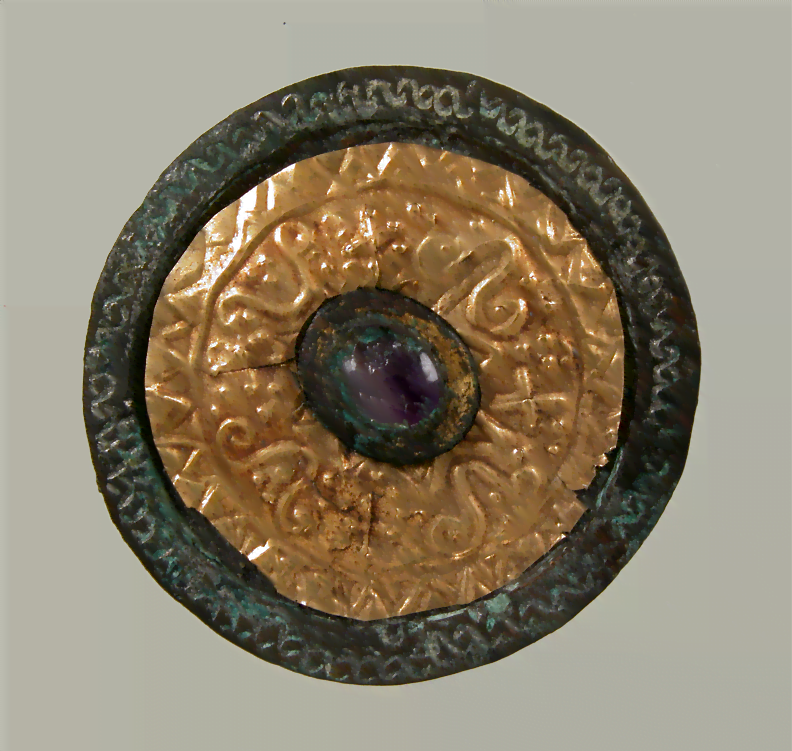
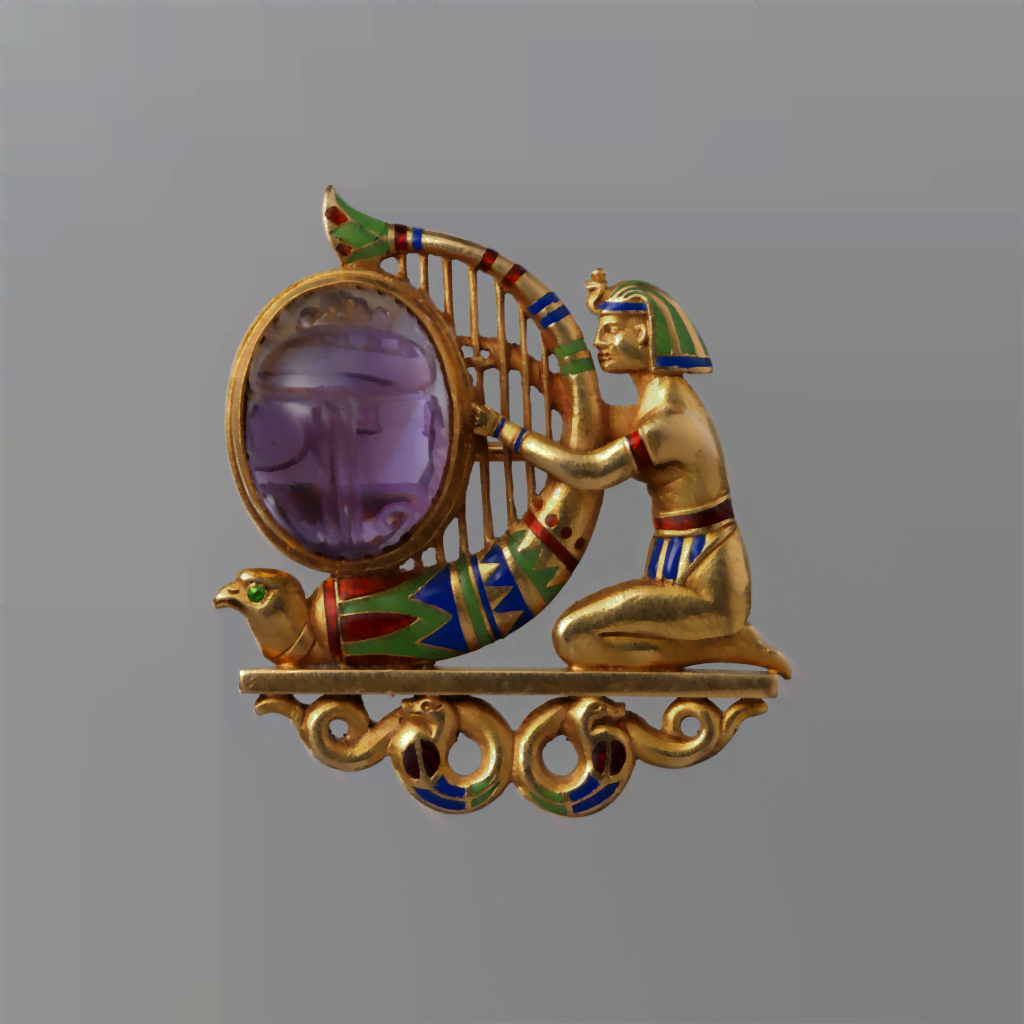
Amethyst, Garnet, Gold and Enamel Brooch by Theodore B. Starr, American, 1900
Egyptian Amethyst Scarab, Middle Kingdom, ca. 1981–1950 B.C. The scarab beetle was a potent symbol of creation and regeneration among the ancient Egyptians.


Chinese Qing Dynasty Amethyst , Late 19th – Early 20th Century
Chinese Qing Dynasty Snuff Bottle of White, Green and Brown Jadeite with Amethyst Stopper, Qianlong Period (1736-1795)


Mid-19th Century Avant-Garde Spanish Clip Earrings, Amethyst, Silver, Metal
We may not have antique carvings, but you can check out our lovely collection of amethyst for sale.
You may also interested in:
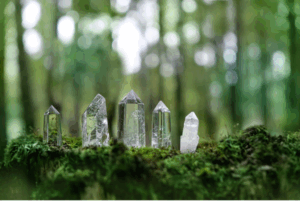
Spiritual and Healing Crystals of Greater Cincinnati: Their Metaphysical Powers and Native American Legacy
The minerals and crystals of the Cincinnati region are not only geological wonders—they are revered for their spiritual, healing, and metaphysical properties, deeply connected to regional traditions, Native American practices,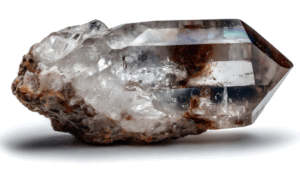
Guide to Quartz Varieties - From Common Crystals to Rare Inclusions
Introduction: The Master Mineral Quartz stands as one of Earth’s most abundant and versatile minerals, composed of silicon dioxide (SiO₂) and crystallizing in the hexagonal system. With a hardness of
Crystals and Minerals for Healing: A Guide to Sacred Stones Across Spiritual Traditions
The use of crystals and minerals for healing, spiritual growth, and energy work spans countless cultures and millennia. From the ancient wisdom of Native American traditions to the chakra systems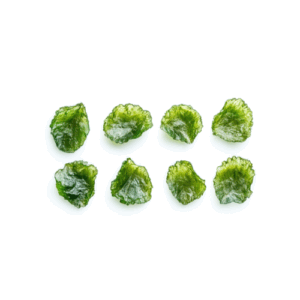
Guide To Collecting Moldavite
Introduction: Understanding Nature’s Extraterrestrial Gift If you’ve ever held a piece of moldavite in your hand, you’ll likely remember the first impression—an almost electric charge and a sense of something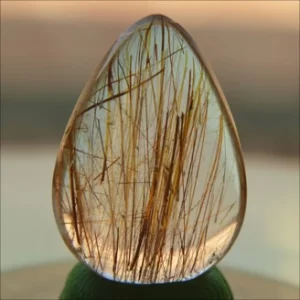
An Introduction to Quartz
Quartz: The Diverse Mineral and Its Multifaceted Significance Quartz, the second most abundant mineral in Earth’s continental crust, stands as a cornerstone in human history and development. Composed of silicon
Taylor Swift Cincinnati Concert Weekend Sale
Photo By Cosmopolitan UK, CC BY 3.0, https://commons.wikimedia.org/w/index.php?curid=84773232 This weekend international pop star Taylor Swift is playing two concert dates in Cincinnati. As with anyplace Taylor plays, this is a
Fluorite
Fluorite - the most colorful mineral in the world! And it fluoresces under UV light, too!
What Exactly do I have - Dolomite, Limestone or Dolostone?
The other night, I was discussing Eddie Murphy with a friend. Murphy, whose career has been up and down over the past 10 years had a bit of a comeback
Popular Purple Minerals
Everybody loves the color purple, a color has an old association with royalty. The dye known Tyrian purple was a luxury item. Created from the secretions of a certain sea